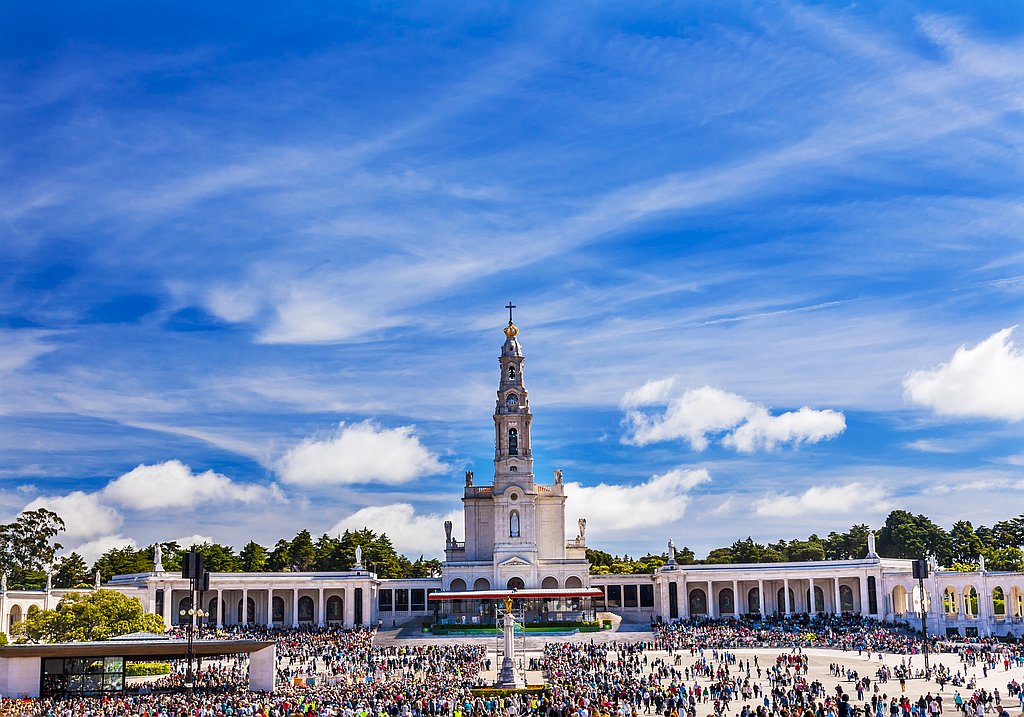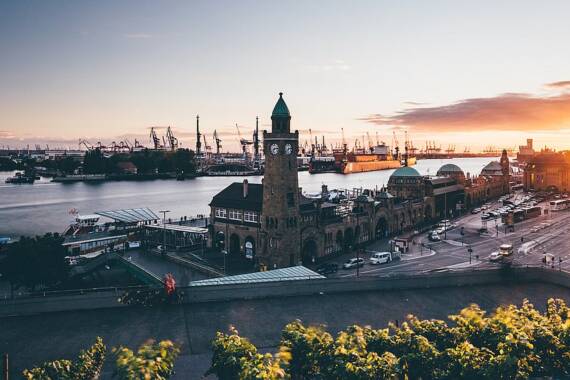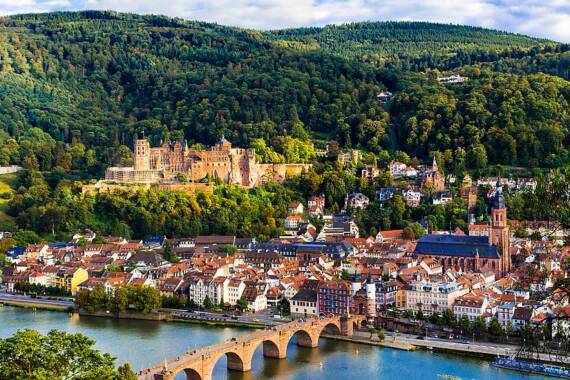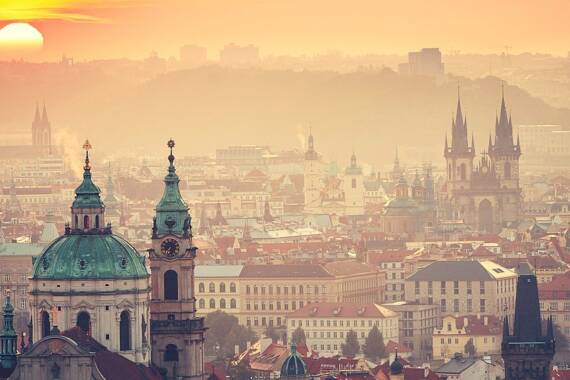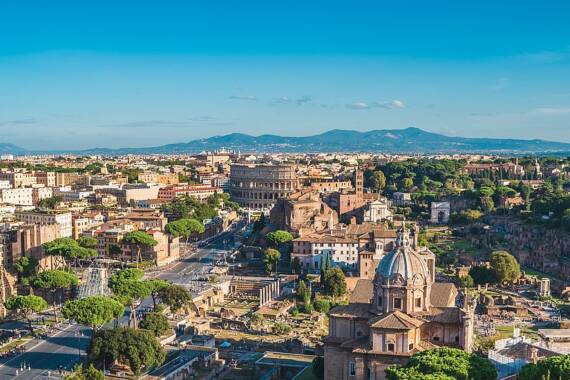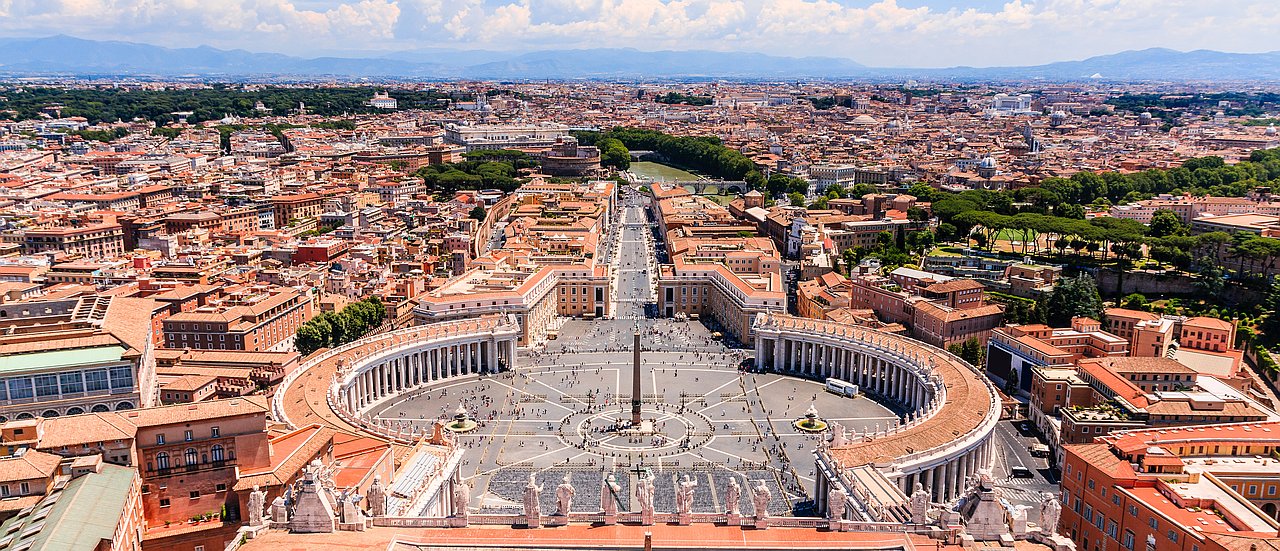
More than just holy places: Pilgrim Travel with IQ Incoming
Reflecting on your faith, visiting holy places of Christianity, taking some time out or find yourself: These are the goals of many Christians, but more and more people without a religious background go on a pilgrim travel. However, those who want to visit Marian shrines and other holy places do not necessarily have to complete the Way of St. James in the direction of Santiago de Compostela or Lourdes. Even without walking along pilgrim paths, pilgrimages – e.g. as a group tour – provide instructive, spiritual, faith-building and historically impressive experiences. Pilgrimages are open to all: be it church organizations, non-profit associations or varicolored mixed groups; Everyone can make up its own mind of religious sites and holy places. Try it out and get to know the wide range of pilgrim travels from IQ Incoming.
What can you expect from a pilgrim travel with IQ Incoming?
Do you need support in planning and organizing your upcoming pilgrim tour? We would be happy to clarify all the details of your travel planning. With IQ Incoming your pilgrimage will be a real success! We will work out an interesting and exciting program for you according to your individual wishes and ideas. Whether in Rome, Israel or in Germany, we are your worldwide suitable hotel agency.
The organization of our pilgrim tours includes:
- Reception of all tour participants by the local tour guide or the guide
- All overnight stays in your chosen hotel category – from pilgrim’s home to upscale accommodation
- Meals included: From breakfast to half board or full board or even special theme evenings
- Local tour guides for thematic city tours or local guides for the complete tour
- All transfers by private coach
- Entrance fees and guided tours for selected sights and museums
- Support in the organization of devotions or church services
Pilgrim Travel with IQ Incoming
In every world religion there are numerous holy places, which are the destination of thousands of pilgrims every year. Pilgrimage sites are of special religious importance: either they are dedicated to divine and holy persons who have worked in the place or they became popular through special events such as miraculous healings or Marian apparitions. We would like to show you the diverse travel possibilities of IQ Incoming to pilgrimage sites as inspiration for your upcoming pilgrimage.

Most popular pilgrimage sites in Germany
Altötting, Oberammergau & Co.
The list of places of pilgrimage in Germany is long: the pilgrimage sites usually originate from the Roman Catholic Church, which also has to acknowledge the place as an official place of pilgrimage. Besides big cities with their large cathedrals like Cologne, Aachen or Trier, there are also many small pilgrimage sites.
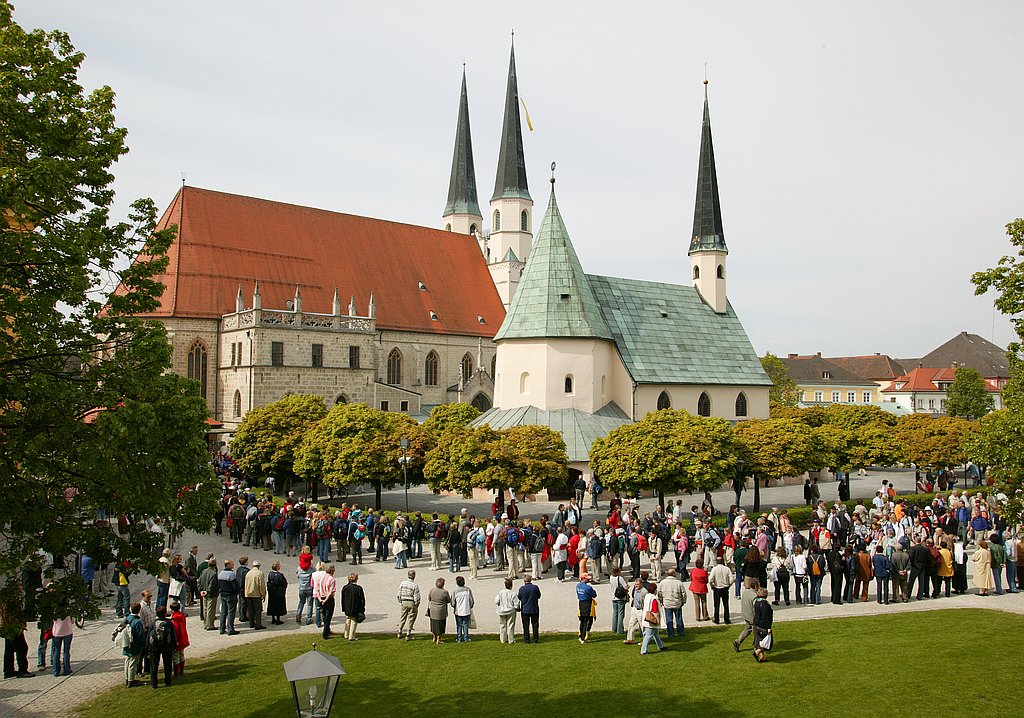
Altötting is famous in Bavaria with the Chapel of Mercy, where a portrait of a black Virgin Mary is located. The Bavarian town of Oberammergau is also popular, especially the Passion Plays, which take place every ten years and attract thousands of visitors. On the Rhine near Vallendar is the “Original Shrine” of the Schoenstatt Movement, a small chapel from the Middle Ages.
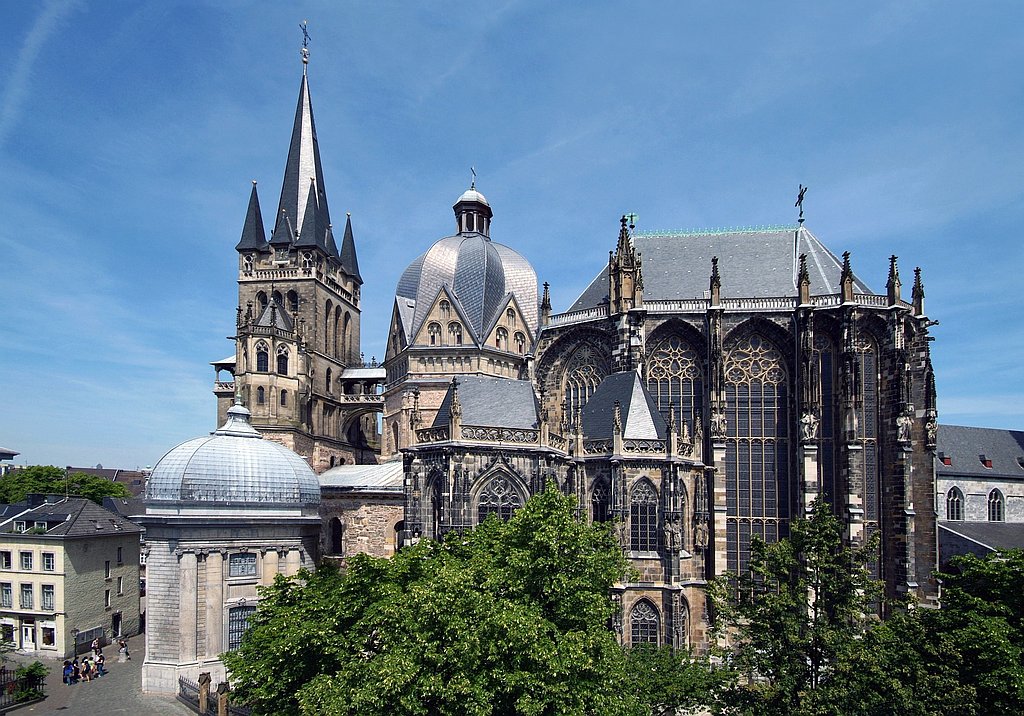
Not far away, the Benedictine abbey Maria im Laach is a popular pilgrimage destination. And on the Lower Rhine, the small town of Kevelaer attracts numerous pilgrims, which became an official Marian pilgrimage site as early as the 17th century.
On Luther’s tracks
Following the footsteps of Martin Luther: The life of the great German reformer can still be traced particularly well in Central Germany today. In Thuringia and Saxony-Anhalt, numerous historical sites from the work of the former monk are still clearly visible. These include in particular Lutherstadt Eisleben, where Luther’s house of birth and his last residence are located. Today, both buildings contain memorials worth seeing, which trace back the work of the city’s most famous son. In addition, a monument on the market square commemorates the influential theologian.
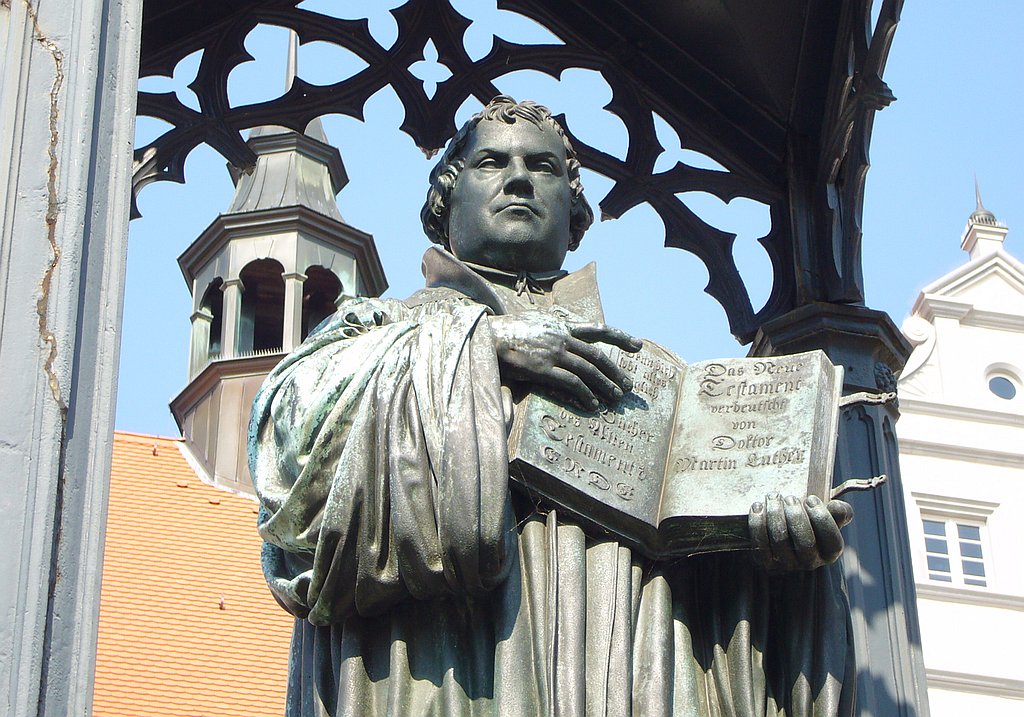
The Thuringian town of Eisenach also played an important role in Luther’s life: There, he went to school in a beautiful half-timbered house and later he hid under the pseudonym Junker Jörg on the Wartburg for almost a year. There the famous translation of the New Testament into German was completed in just eleven weeks. In both sites you can see important testimonies of the history of origin of the Luther Bible.
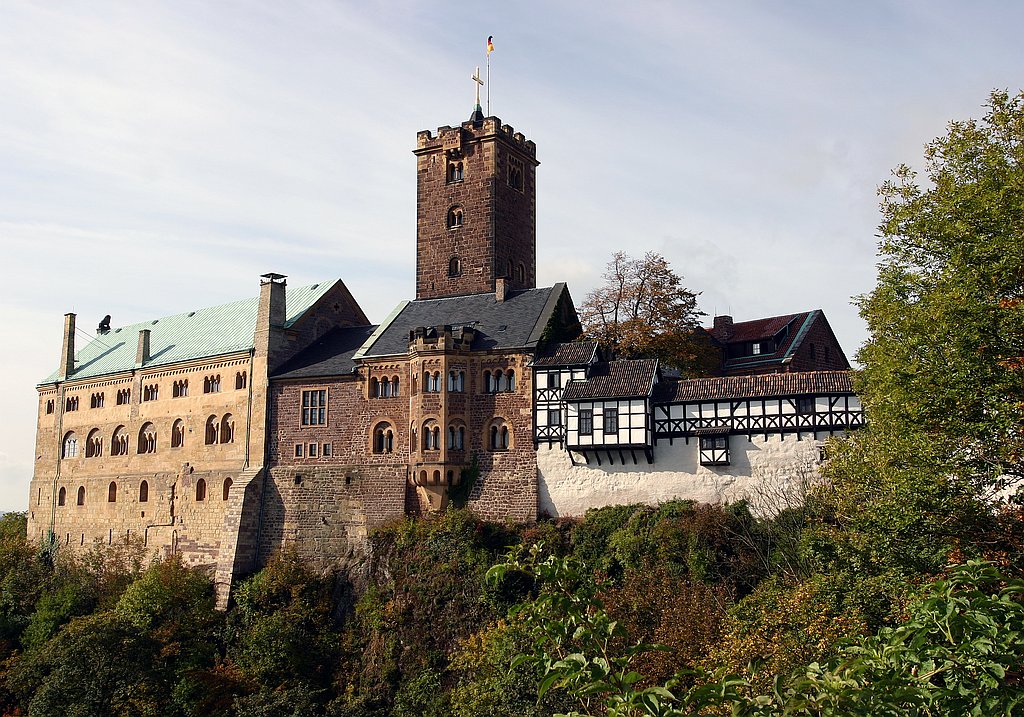
The Luther Mile informs visitors to Erfurt about the most important stages in the life of the Reformer during his time in Thuringia’s capital. Here he was student and monk in the Augustinian hermit monastery for ten years and was ordained a priest in the cathedral.
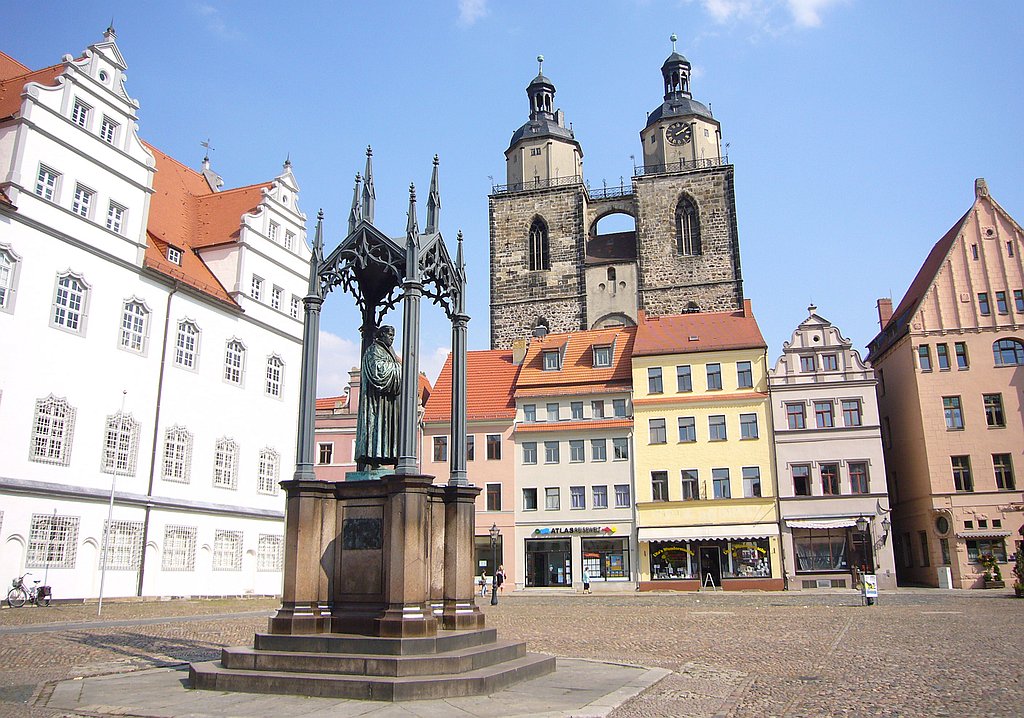
Another official Luther town is Wittenberg. Here the monk of that time is said to have nailed his famous 95 theses to the gates of the castle church. However, it is not considered historically proven whether this event really took place in this way. It is certain, that he sent the theses in letter form to Archbishop Albrecht of Brandenburg. His house in Wittenberg and that of his comrade-in-arms Philipp Melanchton now are housing museums.
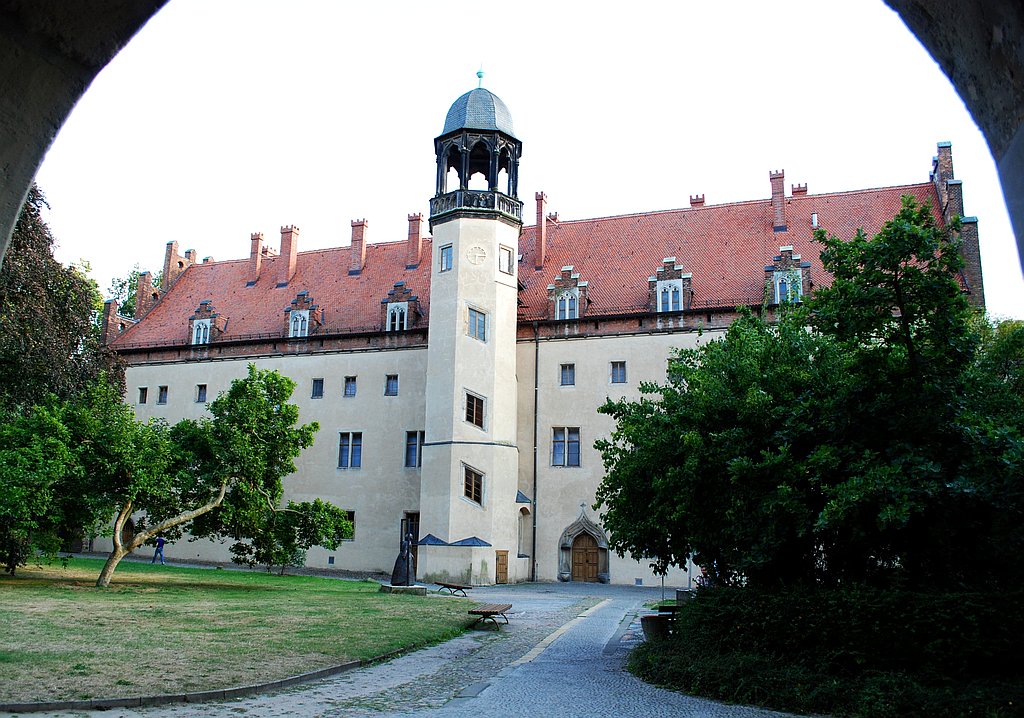
Rome – the center of Christianity
Rome is presumed to be the center of Christianity – more precisely the Vatican City. The Pope is considered as official head of state of the smallest state in the world. The figurehead of the Vatican is St. Peter’s Basilica – the largest church in the world. Thousands of believers gather every Wednesday at 9:30am in front of St. Peter’s Square for the Popes morning blessing.
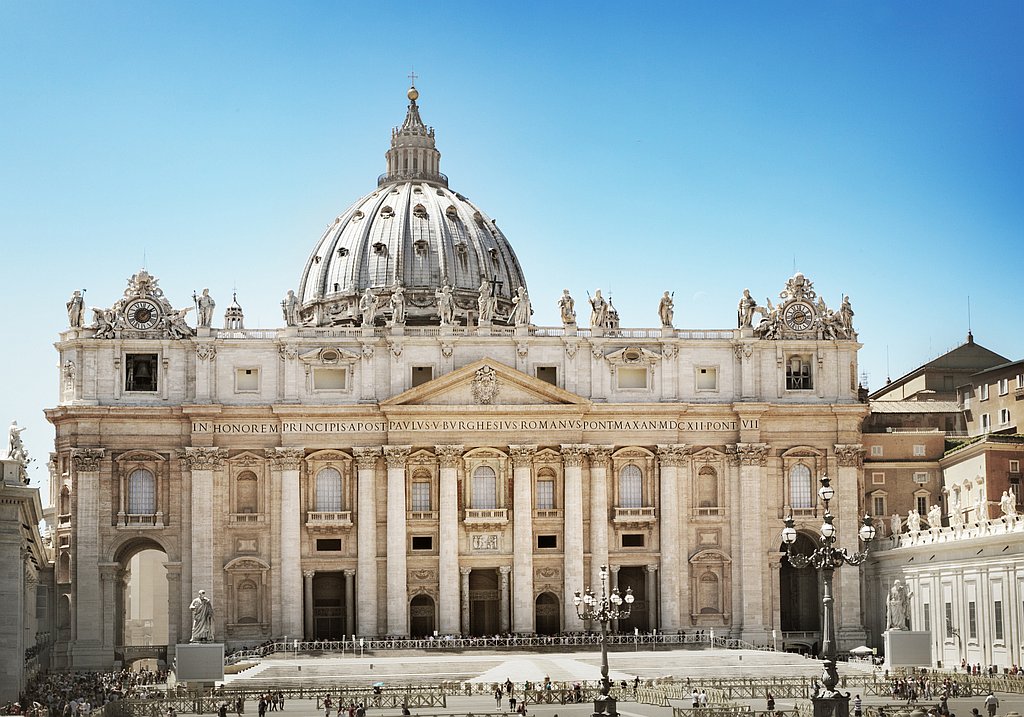
Especially worth seeing are the Vatican Museums, where valuable art treasures are kept. A highlight is the Sistine Chapel, which contains unique frescoes by Italian masters, including Michelangelo’s famous painting of the creation of Adam. Also, apart from the Vatican, visiting Rome is an amazing experience. The Eternal City offers outstanding sights from Antiquity, Renaissance and Baroque to the Rationalism of the 1920s.
Israel – A Visit to the Holy Land
Travel to the roots of Christianity – to the Holy Land of Israel. Visit important biblical sites where Jesus of Nazareth acted more than 2000 years ago. From the Church of Nativity in Bethlehem to his home town of Nazareth, the Sea of Galilee, the baptismal site at the Jordan River, the Dead Sea, and his last residence Jerusalem. Today, three world religions meet here in a very confined space.
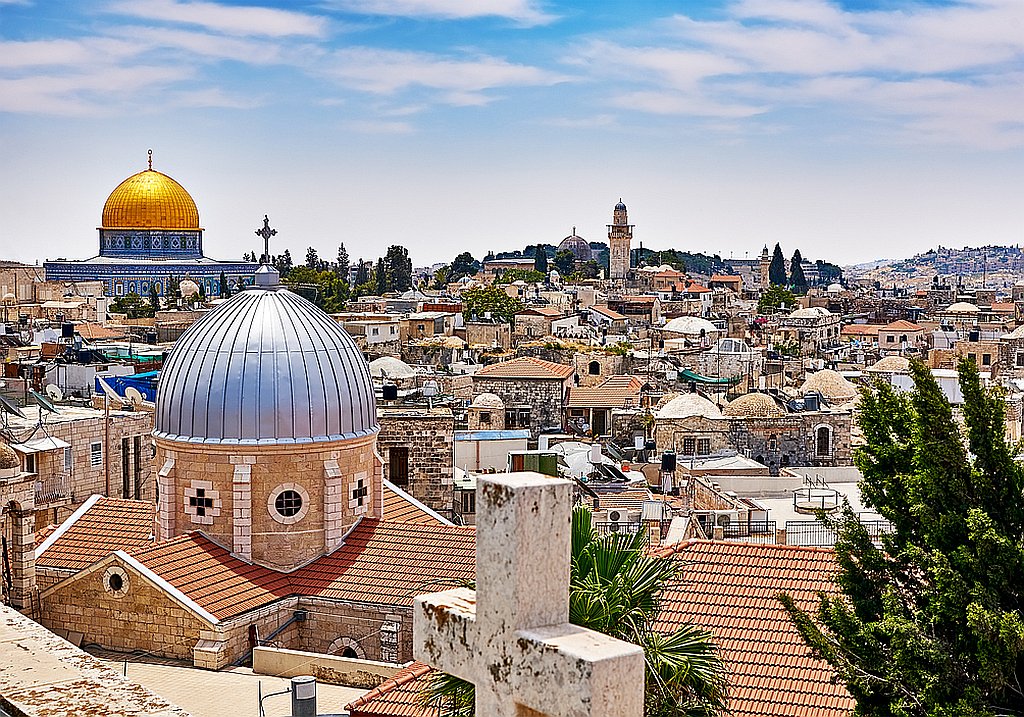
For Jews, Christians and Muslims alike, the place is equally sacred. For Jewish believers, the Wailing Wall is the most important sanctuary in the city. It is the last remnant of the Herodian Temple, which was destroyed during the 1st century. There are now the Dome of the Rock and the Al-Aqsa Mosque – two important Islamic places of worship which have taken it’s place. Christians go on pilgrimage to Jerusalem to relive the suffering and death of Jesus. The 14 stations of the processional route “Via Dolorosa” are modelled on the Way of the Cross and lead to many biblical sites, such as the Church of the Holy Sepulchre, where Jesus is said to have been buried.
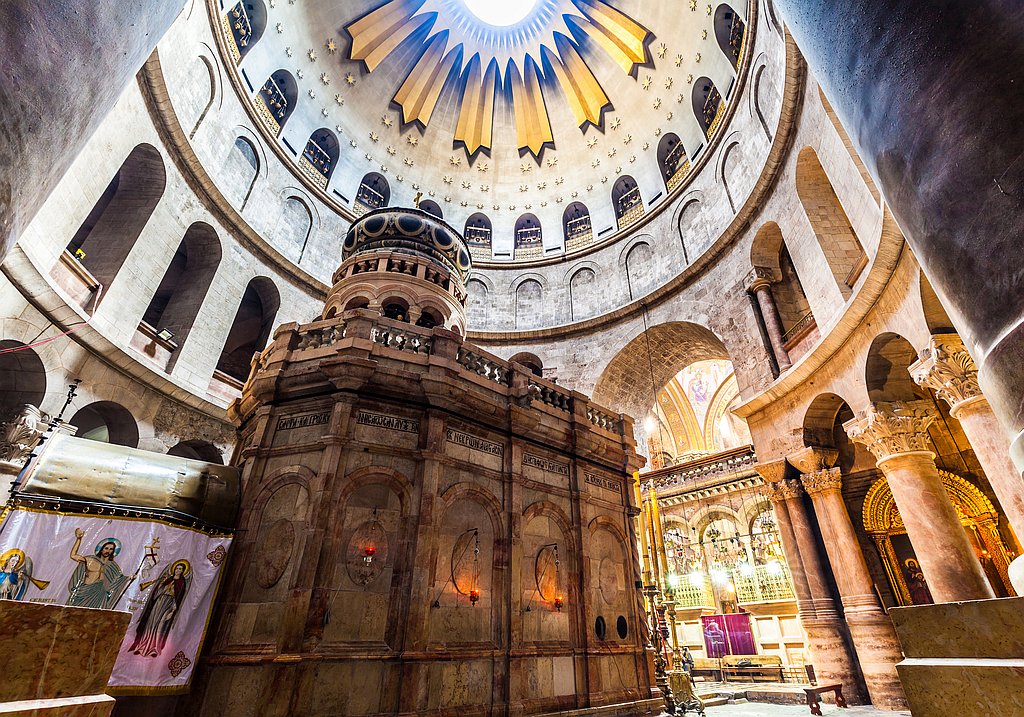
The Marian shrines of Lourdes and Fatima
Two small towns in France and Portugal have become pilgrimage destinations for millions of believers. At the foothills of the Pyrenees in the South of France, Lourdes has become one of the most visited pilgrimage sites. The main reason for this are the 18 Marian apparitions from the year 1858 near the grotto Massabielle. In the cave, a 14-year-old girl – who is said to have seen the Virgin Mary – had uncovered a spring which has since been considered curative and is said to perform miraculous healings. Every year, four to six million visitors head for Lourdes in the hope of curing diseases and paralysis.
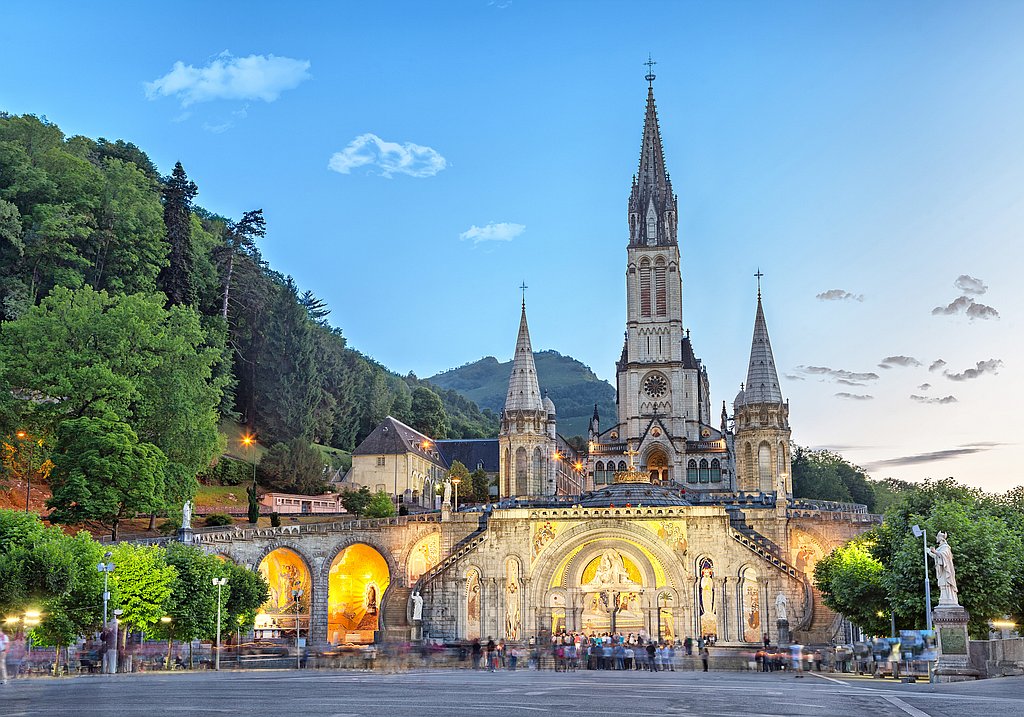
The Portuguese village of Fatima is also said to having been the scene of several Marian apparitions. In 1917, three shepherd children report several Marian apparitions – from May to October on the 13th day of each month. Today most pilgrims come to the village on May 13 and October 13 to commemorate the events. Since 2007, the fourth largest church in the world has stood here and is the largest new church building of the 21st century.
